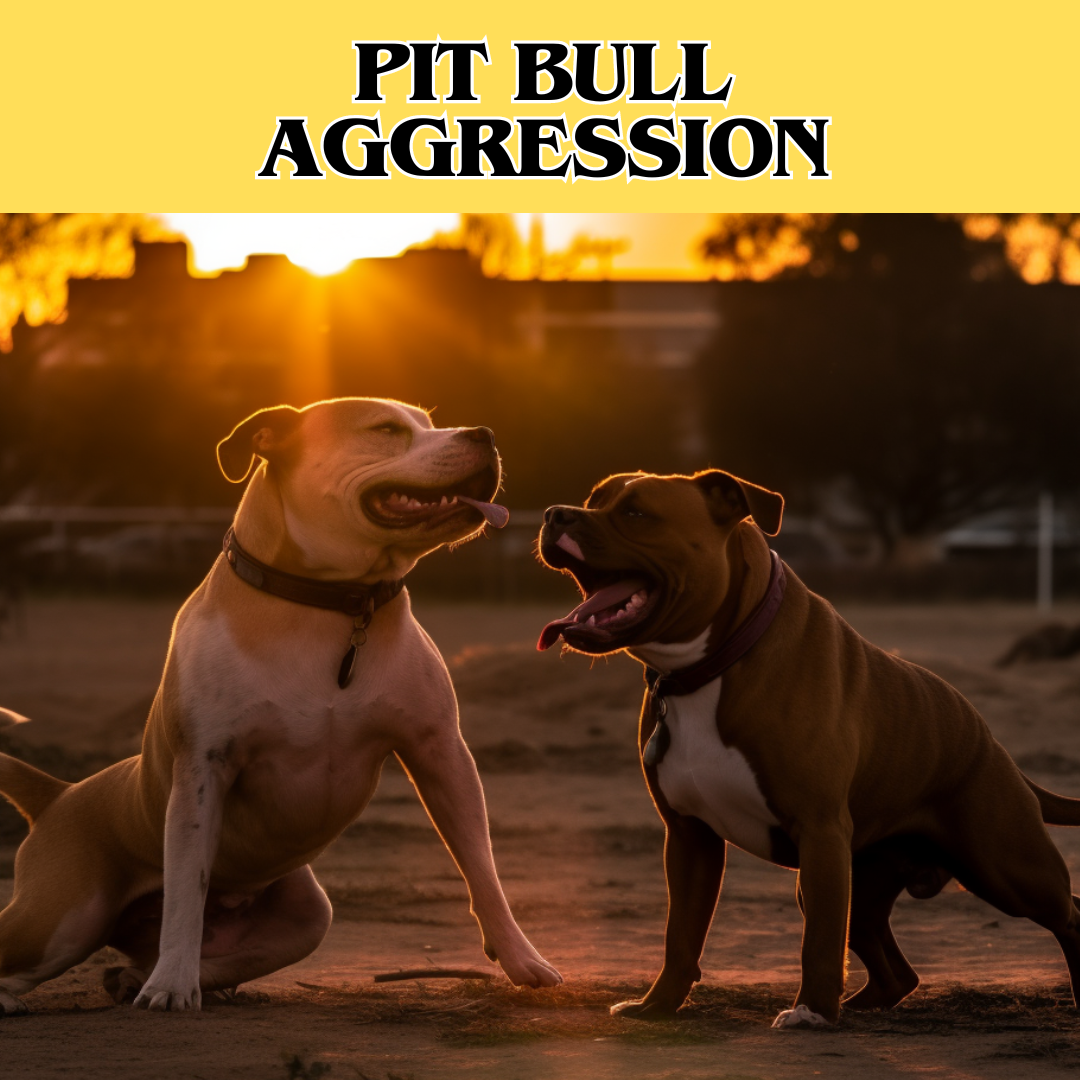Addressing Aggression in Pit Bulls:
Key Takeaways
| Point | Details |
|---|---|
| Root Causes | Understanding the genetic, environmental, and historical factors contributing to aggression. |
| Management Strategies | Techniques for managing and redirecting aggressive behavior. |
| Training Solutions | Importance of leash training and walking etiquette for aggression control. |
| Pit Bull Myths | Debunking common myths about pit bull aggression. |
Pit Bulls, often misunderstood and misrepresented, are a breed that requires knowledgeable handling and care to bring out their best qualities. Addressing aggression in Pit Bulls involves a multi-faceted approach that includes understanding the roots of aggression, effective management strategies, and implementing training solutions that ensure a well-behaved pet. This article aims to explore these aspects deeply, providing pit bull owners with the knowledge they need to foster a positive environment for their dogs.
Understanding the Roots of Aggression
Aggression in Pit Bulls, like any dog breed, can stem from various factors including genetics, environment, and training. It is crucial to understand these roots to effectively address and manage aggression. The history of Pit Bulls sheds light on their breeding purpose, which was initially for bull-baiting and later for farm work, guarding, and companionship. This historical context helps to understand their nature and the importance of proper socialization and training.
Genetics also play a role in a dog’s behavior. The genetics of Pit Bulls can influence their temperament. However, it’s essential to note that not all Pit Bulls are inherently aggressive. Environment and upbringing have a significant impact on a dog’s demeanor, highlighting the importance of a nurturing and structured environment.
Management Strategies for Aggression
Managing aggression effectively requires patience, consistency, and the right strategies. It’s essential to create a safe environment for your Pit Bull, one that minimizes stressors that could trigger aggressive behavior. Understanding Pit Bull temperament is key to recognizing early signs of discomfort or aggression, allowing owners to intervene before a situation escalates.
Training Solutions: Leash Training and Walking Etiquette
Leash training is a critical component in managing and addressing aggression. It not only ensures the safety of the dog, the owner, and others but also serves as a foundation for teaching walking etiquette. Training your Pit Bull to behave well on a leash prevents them from lunging at other animals or people, which is crucial for a breed that is often stronger than others of a similar size.
Implementing a structured training regimen that includes basic obedience and advanced training techniques is essential. These training methods not only address aggression but also help in building a strong bond between the dog and the owner, fostering mutual respect and understanding.
Debunking Pit Bull Myths
Part of addressing aggression in Pit Bulls involves debunking the myths that surround them. The narrative that Pit Bulls are inherently aggressive has been widely disputed by experts who argue that aggression is not breed-specific but rather a product of the dog’s environment, training, and handling. Understanding the truth about Pit Bull aggression can help to change the stigma and encourage responsible ownership and breeding practices.
Continuing Effective Management and Training
Creating a Positive Environment for Training
A positive training environment is essential for Pit Bulls, particularly when addressing aggression issues. Positive reinforcement techniques, which reward good behavior rather than punishing the bad, have been shown to be more effective and beneficial in the long-term development of a well-behaved pet. This approach encourages your Pit Bull to associate good behavior with positive outcomes, such as treats or praise, fostering a more cooperative and less aggressive demeanor.
Socialization: The Key to Reducing Aggression
Socialization is another critical aspect of managing aggression in Pit Bulls. Exposing your Pit Bull to various people, animals, and environments from a young age can significantly reduce fear-based aggression and anxiety. Pit Bull socialization should be done carefully and progressively, ensuring positive experiences that build trust and confidence. This exposure helps them become more adaptable and less likely to react aggressively in unfamiliar situations.
Health and Nutrition: The Underlying Factors of Behavior
The health and nutrition of your Pit Bull can also influence their behavior. A diet that meets their nutritional needs ensures they have the energy for training and daily activities, reducing irritability or aggression stemming from discomfort or illness. Regular health check-ups are crucial to identify and treat any underlying health issues that could be contributing to aggressive behavior. The comprehensive Pit Bull Nutrition Guide provides owners with the information needed to maintain their pet’s health and well-being.
The Role of the Community in Addressing Aggression
Addressing aggression in Pit Bulls is not solely the responsibility of the owner. The community’s perception and treatment of Pit Bulls can significantly impact their behavior. Encouraging positive interactions and reducing stigma can create a more accepting environment for Pit Bulls, reducing stress and anxiety that may lead to aggression. Education on Pit Bull myths and truths is essential in changing public perception and fostering a society where Pit Bulls are understood and respected.
Conclusion
Addressing aggression in Pit Bulls requires a comprehensive approach that includes understanding the roots of aggression, implementing effective management and training strategies, and fostering a positive environment both at home and in the community. By debunking myths, focusing on socialization, health, and nutrition, and using positive reinforcement in training, owners can ensure their Pit Bull grows into a well-behaved, loving companion. Responsible ownership and community support are key to changing the narrative around Pit Bulls and reducing incidents of aggression.
FAQ
Frequently Asked Questions (FAQs) about Addressing Aggression in Pit Bulls
- Is aggression common in Pit Bulls?
- Aggression is not breed-specific and can occur in Pit Bulls like any other dog breed. It often stems from factors like genetics, environment, and lack of proper training or socialization.
- Can aggressive behavior in Pit Bulls be corrected?
- Yes, with consistent and proper training, socialization, and positive reinforcement techniques, aggressive behavior in Pit Bulls can be managed and often corrected.
- What role does socialization play in preventing aggression?
- Socialization plays a crucial role in preventing aggression by exposing Pit Bulls to different people, animals, and environments from a young age, reducing fear-based aggression and anxiety.
- How does health and nutrition affect a Pit Bull’s behavior?
- A balanced diet and good health are essential for a Pit Bull’s overall well-being, which directly influences their behavior. Nutritional deficiencies or health issues can contribute to irritability or aggression.
- Are Pit Bulls inherently more aggressive than other dog breeds?
- No, Pit Bulls are not inherently more aggressive than other dog breeds. Aggression is influenced by various factors, including the dog’s upbringing, environment, and training, rather than the breed itself.
- What training methods are most effective for addressing aggression in Pit Bulls?
- Positive reinforcement, consistency in training, leash training, and early socialization are among the most effective methods for addressing aggression in Pit Bulls.
- How can I safely socialize my aggressive Pit Bull?
- Start by slowly introducing your Pit Bull to new experiences, ensuring each interaction is controlled and positive. Consult with a professional trainer or behaviorist for personalized guidance.
- What should I do if my Pit Bull shows signs of aggression?
- If your Pit Bull shows signs of aggression, it’s important to consult with a professional dog trainer or a veterinary behaviorist to assess the situation and recommend a tailored approach for management and training.
- Can a Pit Bull’s environment influence their aggression?
- Yes, a Pit Bull’s environment can significantly influence their behavior. Stressful or negative environments can increase the likelihood of aggression, while a positive, nurturing environment can promote good behavior.
- Where can I find more information on debunking Pit Bull myths?
- For more information on debunking common Pit Bull myths, visit Debunking Pit Bull Myths to learn the truth about their temperament and behavior.



